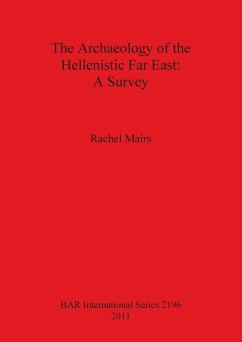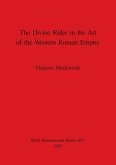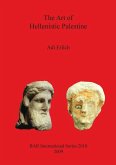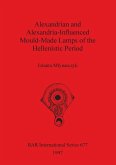This book is intended as an introduction to the archaeology of the easternmost regions of Greek settlement in the Hellenistic period, from the conquests of Alexander the Great in the late fourth century BC, through to the last Greek-named kings of north-western India somewhere around the late first century BC, or even early first century AD. The 'Far East' of the Hellenistic world - a region comprising areas of what is now Afghanistan, Pakistan, Iran and the former-Soviet Central Asian Republics - is best known from the archaeological remains of sites such as Ai Khanoum, which attest the endurance of Greek cultural and political presence in the region in the three centuries following the conquests of Alexander the Great. The 'Hellenistic Far East' has become the standard catch-all term for a network of autonomous and semiautonomous Greek-ruled states in the region east of the Iranian Plateau, which remained in only intermittent political contact with the rest of the Hellenistic world to the west - although cultural and commercial contacts could at times be very direct. These states, their rulers and populations, feature only occasionally in Greek and Latin historical sources. The two great challenges of HFE studies lie in integrating scholarship on this region into work on the Hellenistic world as a whole in a more than superficial way; and in understanding the complex cultural and ethnic relationships between the dominant Greek elites of the region and their neighbours, both within the Greek kingdom of Bactria and in its Central Asian hinterland.
Hinweis: Dieser Artikel kann nur an eine deutsche Lieferadresse ausgeliefert werden.
Hinweis: Dieser Artikel kann nur an eine deutsche Lieferadresse ausgeliefert werden.








